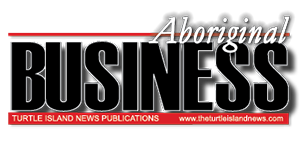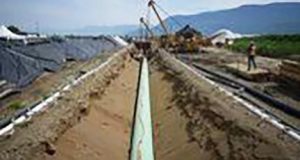By Julien Gignac
Local Journalism Initiative Reporter
Outdated mining legislation, “token” consultation with First Nations, violence against Indigenous women at mine sites and a reclamation system that falls flat, these are just a few concerns that Yukoners raised during a public engagement process about the territory’s mining regime.
From a collection of 3,000 survey comments, 90 interviews, 63 written submissions and meetings, the independent panel behind the Yukon Mineral Development Strategy heard that there’s “a general sense of frustration with the current state of affairs when it comes to mineral development in Yukon,” according to a report that summarizes feedback.
“There is a sentiment that the current mining regime is built to encourage mining at any cost, and that Yukoners don’t feel like they’re benefitting,” the report states.
The message is clear to Michael Pealow, the process facilitator: benefits that come from mining shouldn’t only prop up the economy, they should also extend to the environment, people and the communities in which they live.
“Altogether, 1/8the report 3/8 demonstrates that people are generally unsatisfied with the status quo and see room for improvement,” he said.
While residents appear eager for change, he said the future looks “very promising.”
“It’s very easy to look at a subject like this or a process like this and imagine that it’s like two different perspectives competing with each other for what the future looks like, but really what we heard is that there’s a lot of agreement, a lot of alignment in a lot of areas.”
The report will inform a set of recommendations that are expected to be submitted to the Yukon government in the spring.
The Yukon government will consider all recommendations presented by the independent panel, said Jesse Devost, a spokesperson with Energy, Mines and Resources, in an email to The Narwhal.
“We are confident the Mineral Development Strategy will provide recommendations that strengthen and diversify Yukon’s economy while respecting environmental stewardship and First Nations’ special relationships with the land,” he said.
A lot of attention was paid to the out-dated Quartz and Placer Mining Acts, Pealow said, with many Yukoners pushing for their modernization.
Although these Acts were created to keep the mining industry in check, many people, including industry, are struggling with the legislation “because it’s quite old and certainly reflects a different time,” Pealow said. “There have been quite a large number of amendments over the past more than a century and, as that happens, it becomes a little more difficult to understand what the legislation is saying.”
“Also, the world has changed.”
For example many residents weighed in on the territory’s controversial free entry system, which lets anyone 18 years or older, regardless of their country of origin, to stake a claim anywhere in the territory.
Some First Nations have already called for the system to be abolished, citing its colonial legacy and its tendency to predetermine how land can be used in the future. The system does not allow claims located in territorial parks, municipal zones or certain settlement lands.
According to the independent panel’s report, many Yukoners would like to see legislation that holds governments and mineral companies to “higher social, environmental and economic standards,” strengthens enforcement and prioritizes water and wildlife.
Giving legislation a facelift could also mean the territory could better ensure enough money is secured from companies for mine reclamation, environmental protection and obligations to First Nations.
When mining companies come to work in Yukon, they tend to reap profits and leave the cleanup tab for residents to deal with, participants said.
“It was suggested that abandonment is part of the business strategy,” the report states. “Often, on-going maintenance and reclamation activities become a burden to taxpayers. Many participants criticized the Yukon track record when it comes to mine reclamation, remediation and restoration.”
Participants pointed to the abandoned Wolverine mine, which saw its owners walk away from increasing costs needed to prevent the mine from polluting the surrounding landscape. The case underscores what many consider to be shortcomings of the territory’s bonding system, which risks foisting cleanup costs on taxpayers instead of companies.
Participants involved in the engagement process said issues like these can be avoided through “progressive reclamation,” an approach that reduces the amount of unrestored disturbance at any given time “and to reduce the amount of remediation that might have to be paid for out of bonds,” the report states. Any proposal that doesn’t include a final closure plan, along with full costing and bonded security, shouldn’t go ahead, participants said.
“Several participants, including some from the mining industry, have suggested that perpetual water treatment or perpetual reclamation is not practical because no amount of bonding can adequately cover long-term costs of a perpetual nature, and that projects that need perpetual care should be denied,” the report states.
The report lists several recommendations from members of the public to prevent another Wolverine mine. One involves establishing an independent body whose sole task would be to deal with reclamation funds and mine closure operations. Other participants call for greater accountability of industry executives, including the possibility of holding them personally liable for damage, laying criminal charges for neglecting to cover reclamation costs and “banning individuals or companies associated with orphaned or abandoned mines from operating in the Yukon.”
More inspections and greater enforcement are also being called for.
Participants generally stated that there aren’t enough inspectors monitoring mine sites in Yukon, and compounding the issue is that they don’t have enough resources to do their jobs. The suggestion is that bad behaviour might be going unchecked.
First Nations can, and should, help inspect sites, several participants, including some from the mining industry, recommended.
“Others have pointed out that several First Nations already have their own inspectors, guardians or environmental monitors and that they might be able to assume the inspection role,” the report states. “One participant suggested that embedding First Nations inspectors and pairing them with Yukon Government inspectors would mean access to real-time information for what’s actually happening at mineral development sites.”
Some participants pointed out that the role of inspectors can be dangerous at times. Those that have visited placer mining sites have received death threats and their property has been damaged for just doing their jobs.
In broad strokes, many participants want to see stricter enforcement at mines, with stronger penalties, including bigger fines, denial of permits and even criminal charges, the report states.
There also appears to be a schism between First Nations, the Yukon government and industry when it comes to what consultation means.
Consultation is “haphazard and inconsistent” across the territory in ways that aren’t only counterproductive for First Nations but the Yukon government and industry, too, participants of the public engagement process said.
“Holding meetings or engaging in correspondence and then presuming that consultation has occurred is one of many criticisms raised about current consultation processes,” the report states.
“Many participants raised concerns that First Nations are not actually listened to or understood and recommended that their input be taken seriously.”
Roberta Joseph, the Chief of Tr’ondek Hwech’in First Nation, told The Narwhal that consultation in the territory depends on the project. While some large quartz companies tend to do a decent job of involving and listening to her First Nation, there are some junior, exploration companies that skirt around consultation.
Joseph said the Yukon government has a habit of hiding behind the Yukon Environmental and Socio-economic Assessment Board when it comes to consultation with First Nations.
“That process is not a form of consultation, by any means, for neither the government nor industry,” she said. “The government is the one with the duty to consult and to take into consideration a meaningful engagement that ensures that our views are considered as well as our recommendations are accommodated according to the spirit and intent of our final agreement.”
Final agreements signal that a First Nation has settled its land claims and is self-governing. Eleven of 14 First Nations in Yukon have these agreements in place.
Adequate consultation can ensure that industry moves ahead in a way that meets the needs of First Nations without encroaching on their lands too much, suggests one participant of the public engagement. Without that proper level of consultation, First Nations’ lands, including traditional territories, can be severely impacted.
“Our country is being taken apart,” one participant said.
“Chopped up like a chainsaw.”
Land management practices could be improved by increasing Indigenous representation, including having First Nations people at the board level of mineral development companies, for instance, or having a consultation process co-developed between First Nations and the Yukon government, participants said.
“Many felt that consultation would remain inadequate until First Nations are engaged as full partners, in a co-governance role with decision-making powers,” the report states.
“Many expressed the view that First Nations should have decision-making rights or `veto power’ on projects in their traditional territories,” the report states, adding that other participants said that First Nations should have the same powers over their settlement lands, where both surface and subsurface rights are present.
A spokesperson with the Yukon Chamber of Mines did not return requests for comment.
When mines crop up, the influx of workers can present a whole host of problems for adjacent communities and women, particularly Indigenous women, participants said. Drug and alcohol abuse can be exacerbated and there can be increased rates of violence, they said.
“The boom and bust cycles have a huge social cost,” one participant said.
First Nations involved in the engagement process expressed concern that citizens have faced racism at certain mines sites, and several participants said there’s a correlation between mining and violence against Indigenous women and girls.
“There is a plethora of research documenting the negative impact of an influx of horny young men with money to burn and little in the way of social norms on communities,” one participant said.
“Similarly, life for women in mining camps can be rife with sexism and sexualized violence.
A section of the National Inquiry into Missing and Murdered Indigenous Women and Girls, the final report of which was released last June, says extraction projects can exacerbate violence against Indigenous women and girls.
Participants suggested more support for women’s groups, implementing elder-in-residence programs at mine sites, improving gender representation in management positions and prioritizing the safety of women when assessing and approving mining projects.
“It was further recommended that this must entail dialogue with First Nations women and women’s groups to not only address their concerns but ensure a monitoring protocol is put into place which may include community and independent monitors, and that indirect benefits are discussed and delivered,” the report states.
One participant said that mine sites tend to be isolated and male dominated, which creates an “an echo chamber of dehumanization of women, and this is partly responsible for sexual assaults, especially on nearby Indigenous women.” These “man camps” should be dismantled by introducing equal gender representation in camps, the participant states.
Julien Gignac is a Local Journalism Initiative reporter who works out of the Narwhal. The Local Journalism Initiative is funded by the Government of Canada.
 Aboriginal Business Magazine Your source for Aboriginal Business News
Aboriginal Business Magazine Your source for Aboriginal Business News



